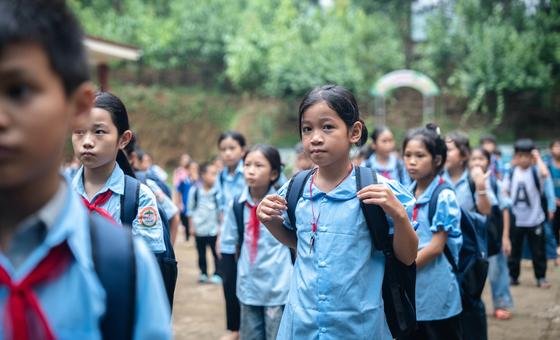On the occasion of International Disaster Risk Reduction Day on Sunday, he warned that disasters have a profound effect on children.
“When disaster strikes, it wreaks havoc on individuals, societies and economies. “Their far-reaching impact in the form of death, destruction and displacement is unimaginable.”
This top UN official said that due to the climate crisis, disasters are becoming more powerful and their frequency and intensity are increasing.
“No one is safe, but children are especially vulnerable.
One billion children at risk
The United Nations Children’s Fund (UNICEF) says nearly one billion children are at grave risk from the effects of climate change. In recent years, it has become clear that children are the most affected by severe floods every year.
Even after the disaster, they continue to face obstacles in education, nutrition and health care. Often, they are cut off from social services and protections, a particularly dangerous situation for children with disabilities.
The situation is also dire for children from poor and disadvantaged families, and they face enormous challenges in recovering from the effects of disasters and climate change.
Children are the biggest victims
Secretary-General Guterres said that despite living in precarious conditions, children are not victims of this disaster. “They have much at stake in the future, and their ideas and innovations can help us reduce disaster risk and increase resilience.”
The International Day for Disaster Risk Reduction is observed on October 13 every year. This year’s theme is youth empowerment for a disaster-free future and the role of education in this process.
According to the UN chief, education can not only protect children, but also make them part of the decision-making process, which aims to reduce risks for all.
important measures
The UN Secretary-General has urged countries to take concrete steps to reduce disaster risk. These include covering entire populations with early warning systems, making necessary changes in schools to cope with disasters and championing their resilience through youth empowerment.
Antonio Guterres also called for the adoption of the School Resilience Framework, a roadmap that focuses on reducing disaster risk and promoting resilience in the education sector.
It provides guidelines and measures for the Ministry of Education, Disaster Risk Management and other stakeholders to create a better environment for teaching and learning.

